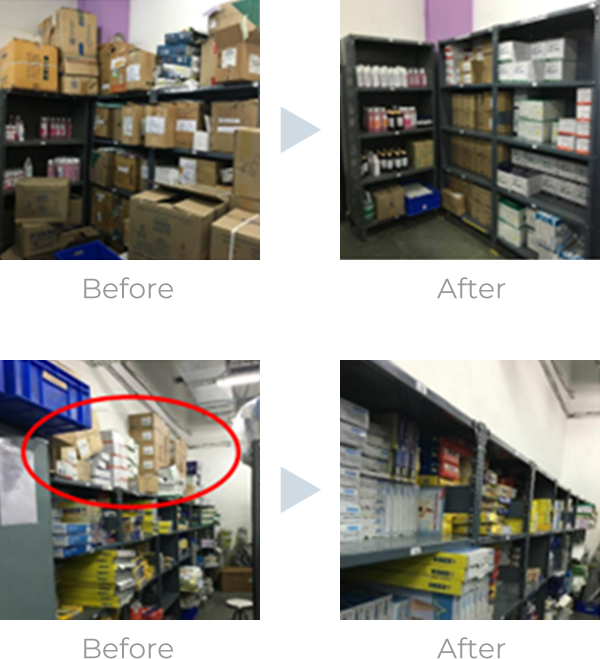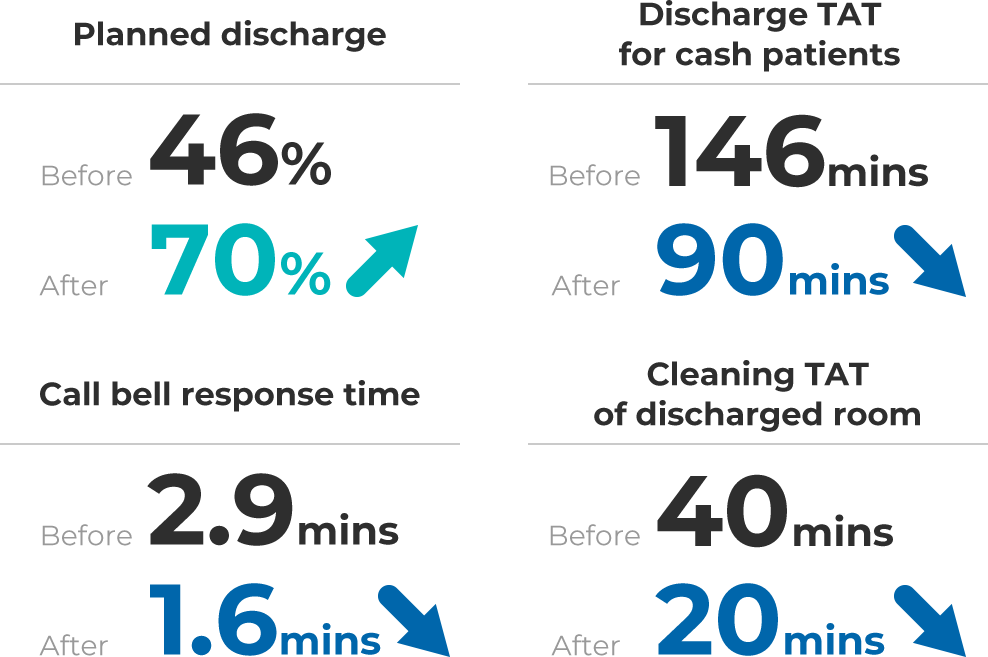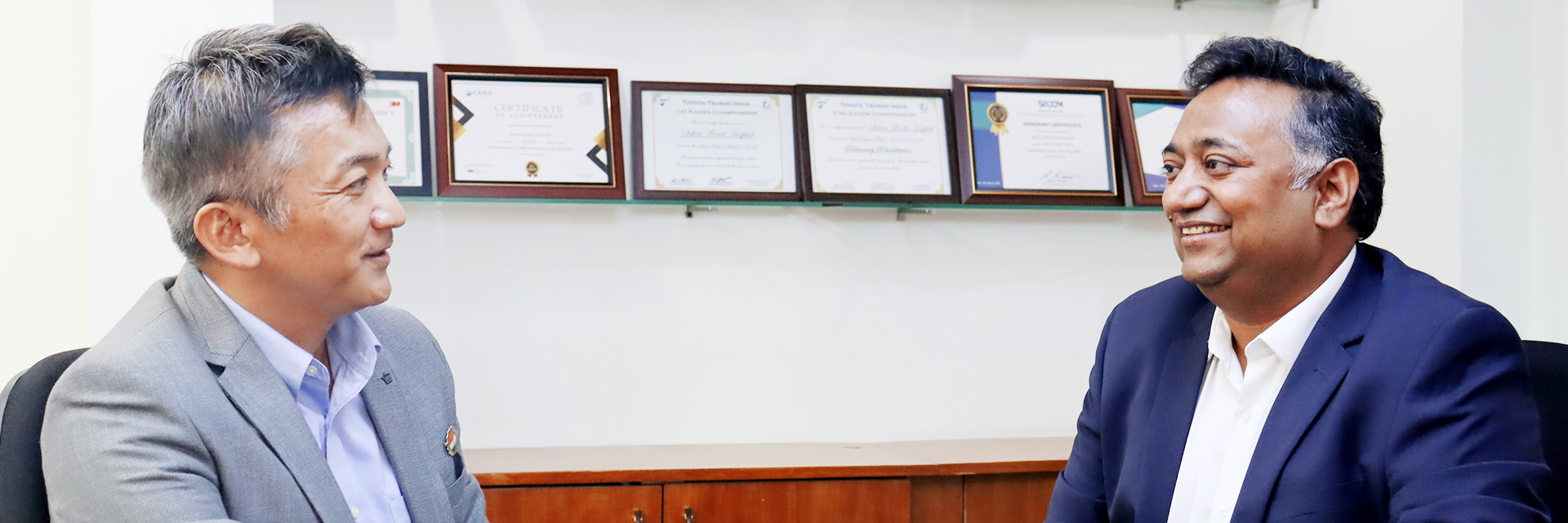
Feature
How would healthcare
in India be changed?
Sakra World Hospital's Challenge
Sakra World Hospital, India's first Japanese-style multispecialty hospital.
How has a Japanese-style multispecialty hospital changed healthcare in India? Let’s see how SECOM has challenged.
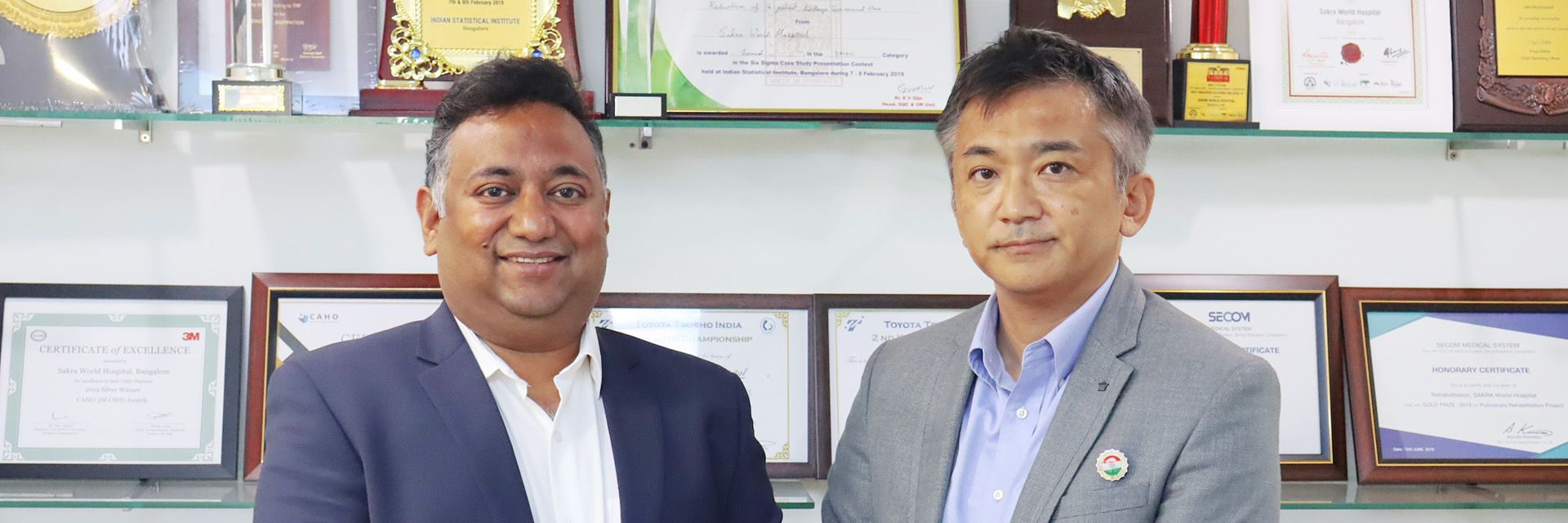
Lovekesh Phasu
Takshasila Hospitals Operating Private Limited
COO (Chief Operating Officer)
Yuichi Nagano
Takshasila Hospitals Operating Private Limited
President (Managing Director)
India, which boasts a population of 1.38 billion making it the world's second largest population, is, on a per capita basis, one of the world’s poorest in terms of healthcare resources. The number of doctors, nurses, hospital beds, and clinics per capita is very low, making it difficult for people to receive the medical care they need when necessary, and the low average life expectancy and high neonatal mortality rate still continue to be social problems. The number of patients with cardiac and cancer diseases is also on the rise, increasing the demand for advanced medical technology.
Bengaluru, where Sakra World Hospital is located, is a large city with a population of about 12 million. Back when SECOM was considering opening the hospital, the disparity in medical care between the city and the suburbs and rural areas was very large, and people living far from the city were not able to receive adequate medical care due to the distance from the hospital. Also, even in urban areas, there were few providers of home health care services, and some people were unable to get the medical examination and treatment they needed.
The number of health care professionals is inadequate in ratio to the population,
and people lack access to health care services.
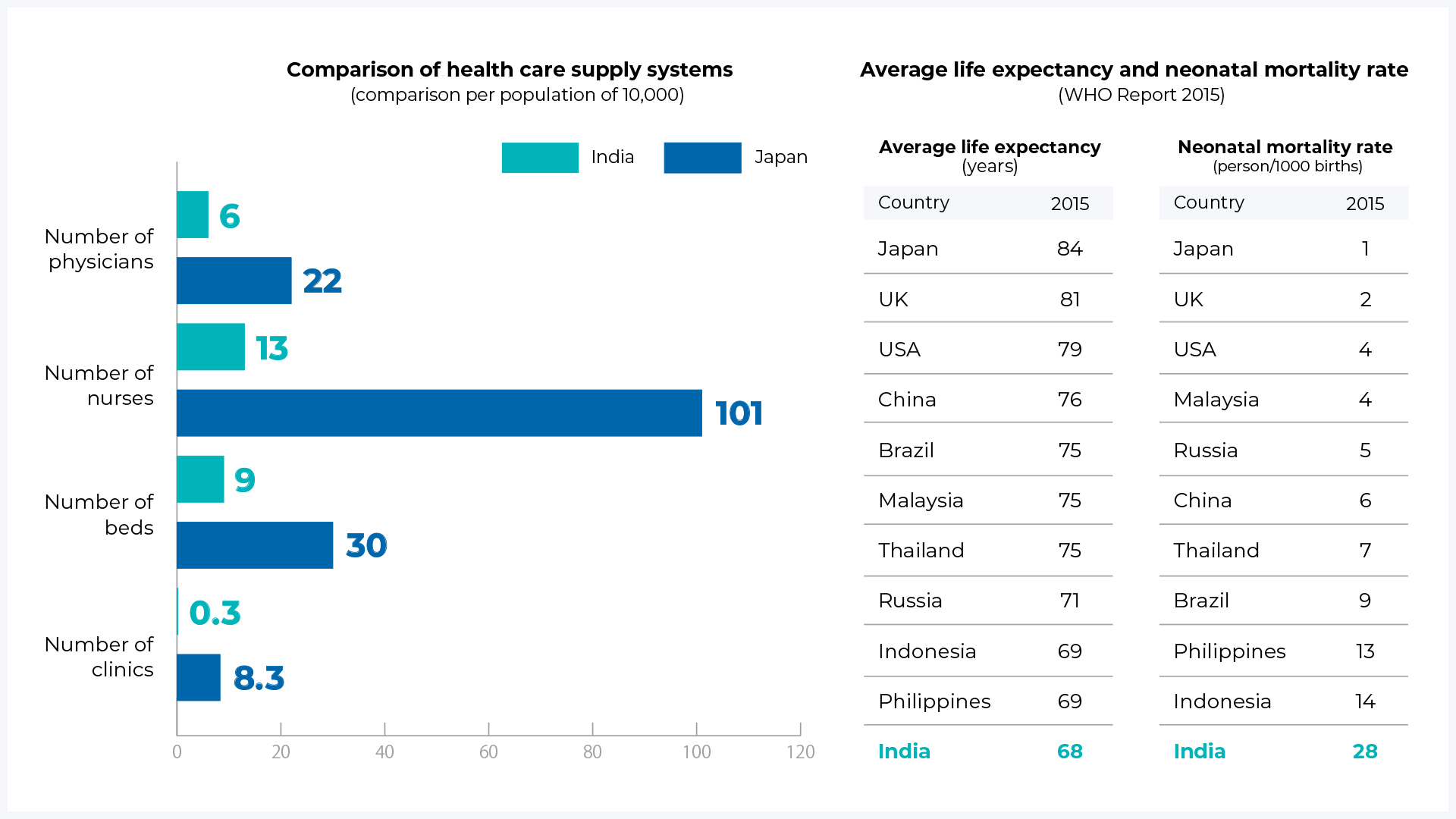
SECOM, through Secom Medical Systems Co., Ltd. (“Secom Medical Systems”) which operates the health care business in the Secom Group, opened a multispecialty hospital, Sakra World Hospital, in Bengaluru, India, together with a major Japanese trading company.
Although this was SECOM’s first overseas expansion in the health care business, SECOM has applied to this business various hospital management expertise cultivated through its hospital support business in Japan. In addition, Sakra World Hospital established a new department rendered home medical services, and is operating a Japanese-style mobile health checkup vehicle converted from a bus to provide medical care in rural areas where access to hospitals is difficult.
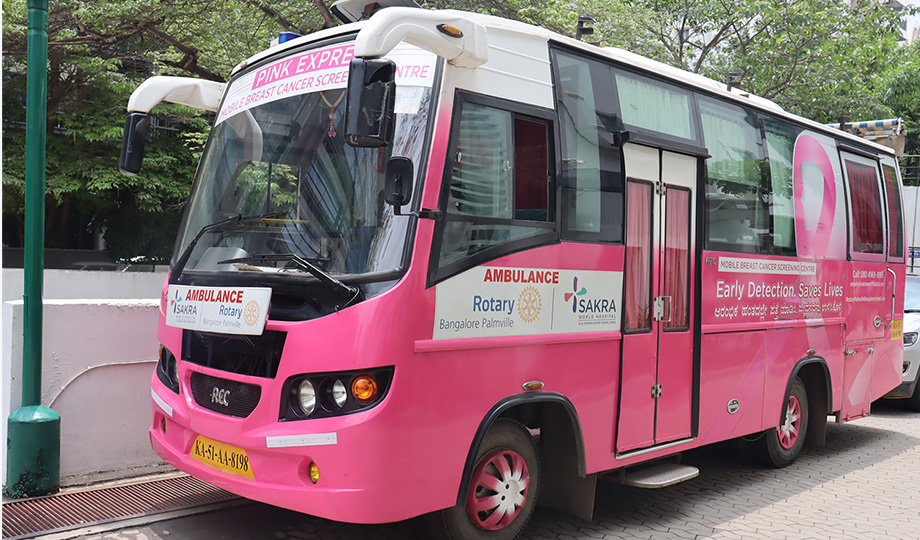
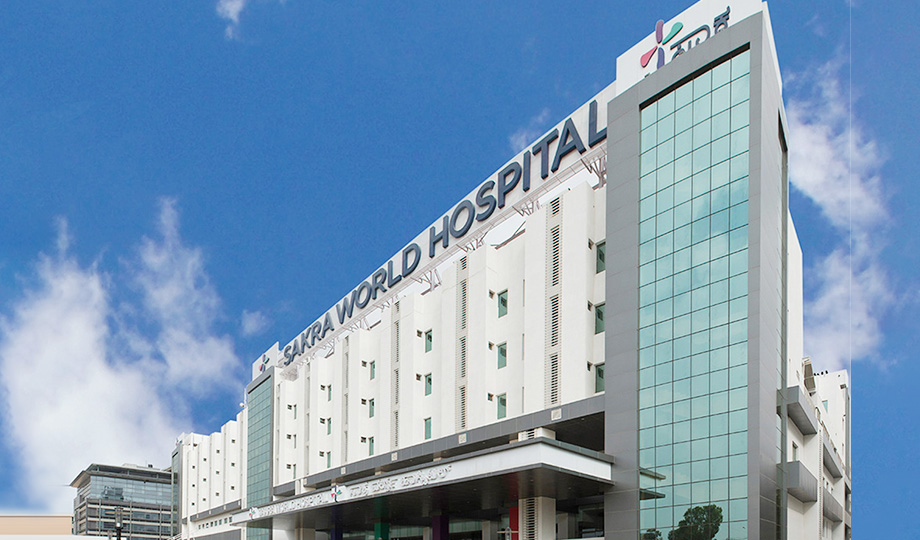
As the foundation of successful hospital operations is the enhancement of clinical training and the assurance of high quality and patient safety, Sakra World hospital actively invests in clinical training for medical specialists and nurses, and has established a department dedicated to medical safety management, which is uncommon in India, to provide onsite safety awareness.
Sakra World Hospital currently has about 80 residents in clinical training program. The selected residents improve themselves through observation, instruction, and discussion with senior doctors not only from own facility but also from SECOM Medical Systems’ partner hospitals and Japanese universities.
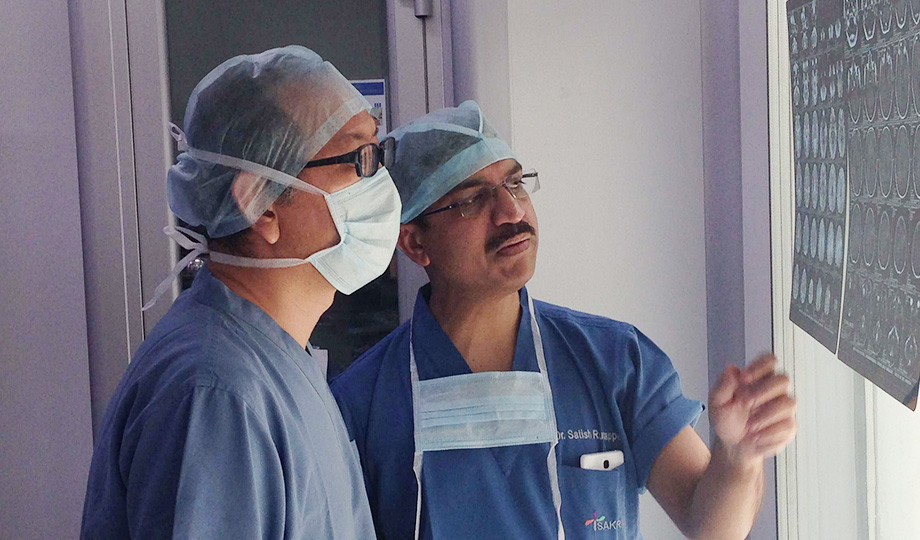
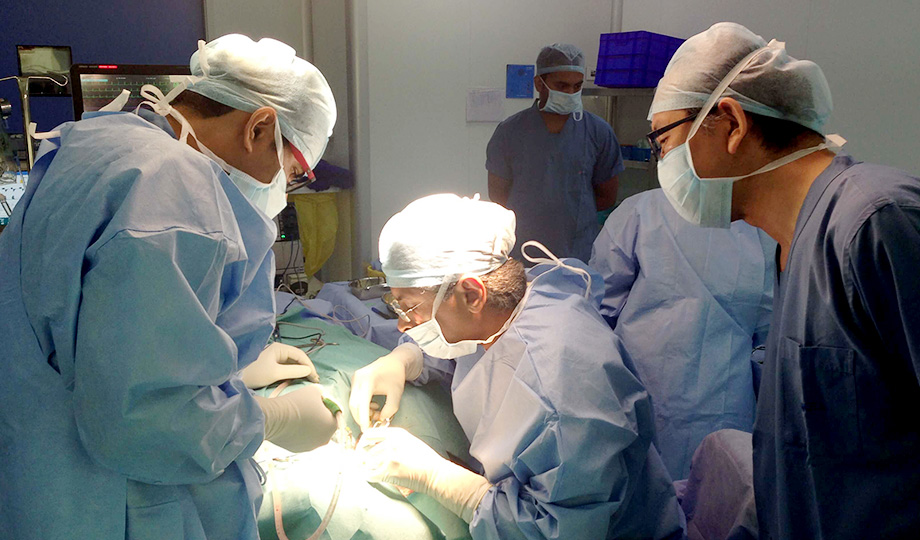
In addition, when training nurses, Sakra World Hospital introduces to local staff advanced Japanese nursing skills, such as injections, intubation, and hospitality. Excellent nurses were selected and cultivated to become trainers, who after certified, could train another staff. A positive cycle was created in which local staff are training another local staff, and there was a significant improvement in the quality of nursing care, such as tracheal intubation after the training.
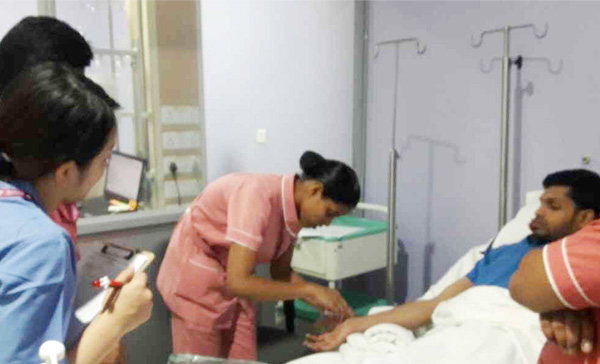
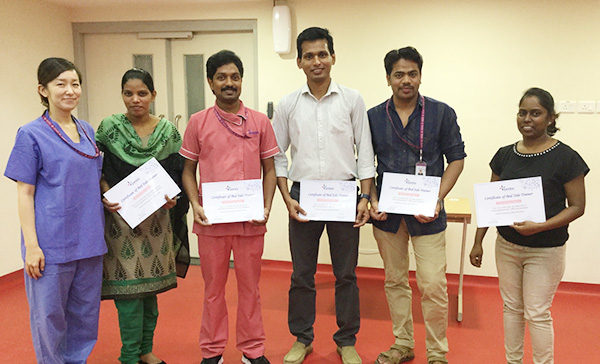

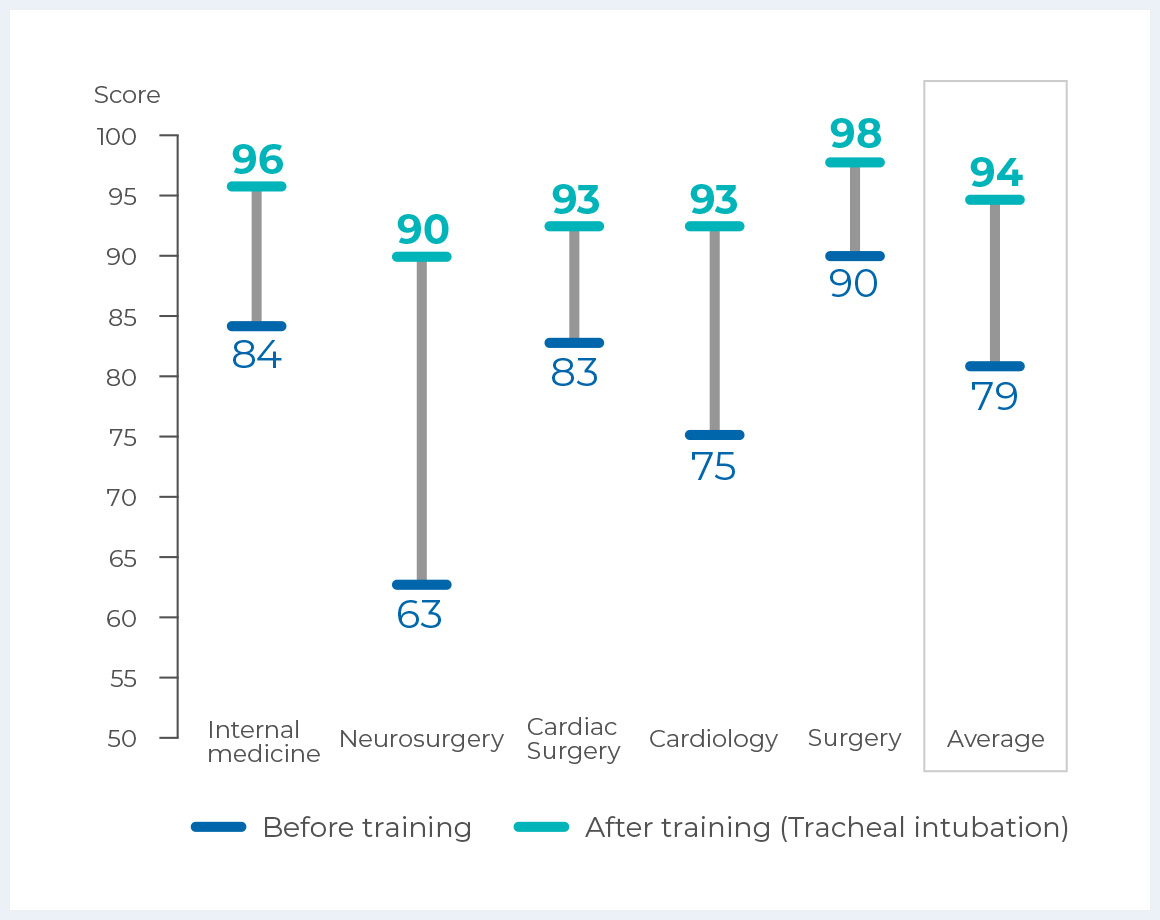
Sakra World Hospital also put in order the shelves for medical inventory by adopting the Japanese concept of "kaizen," which is used to express things changing for the betterment. Such small improvements have made an overall enhancement in quality of medical care, including shorter cleaning times for patient rooms and rate of ontime discharge.
